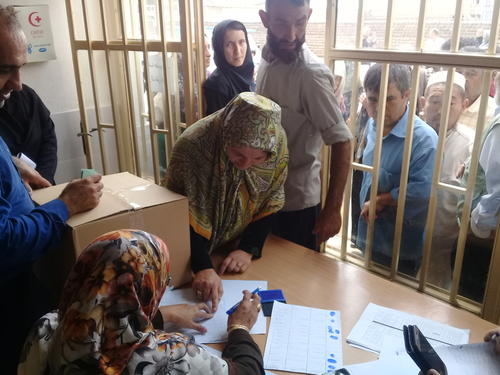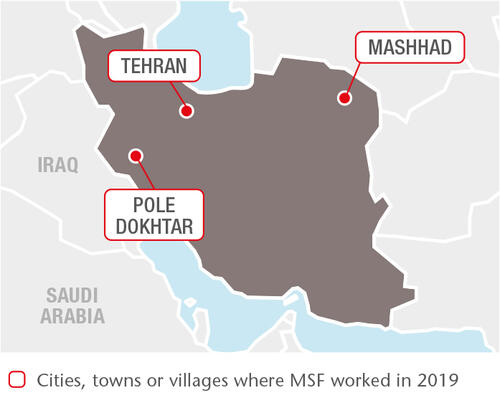
41,700
41,7
5,410
5,41
180
18
Iran officially hosts 950,000 Afghan refugees, although the UN refugee agency, UNHCR, estimates that between 1.5 and 2 million undocumented Afghans also live there. They, and other excluded and marginalised groups, such as drug users (around three per cent of the population), homeless people and the Ghorbati ethnic community, struggle to obtain medical assistance.
In 2019, our teams continued providing comprehensive care to vulnerable groups at high risk of infectious diseases in South Tehran via a health facility and a mobile clinic. Services here include medical consultations, testing for communicable diseases (HIV, tuberculosis, hepatitis B and C), treatment for hepatitis C and sexually transmitted infections, specialist referrals, as well as ante- and postnatal care, midwifery and family planning. A team of peer workers, social workers and psychiatrists offer mental health support.
We deliver similar services for refugees and host communities in our project in Mashhad, near the Afghan border, via mobile clinics in Esmail Abad and Golsharh. We also run a fixed clinic in Golsharh, where most of the 320,000 Afghans officially living in Mashhad have settled.
Following flash floods affecting several provinces, MSF launched an emergency operation in Lorestan at the end of April. For three months, we ran mobile clinics, where we provided nearly 7,260 consultations in remote villages, and distributed hygiene kits. To mitigate the effects of heat in the summer, we set up evaporative water coolers and installed metal roofs in some of our health posts. We also donated medical material, hygiene kits and cooking sets in Golestan.

















